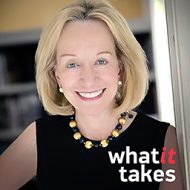I just want them to come alive again. That's all you really ask of history.
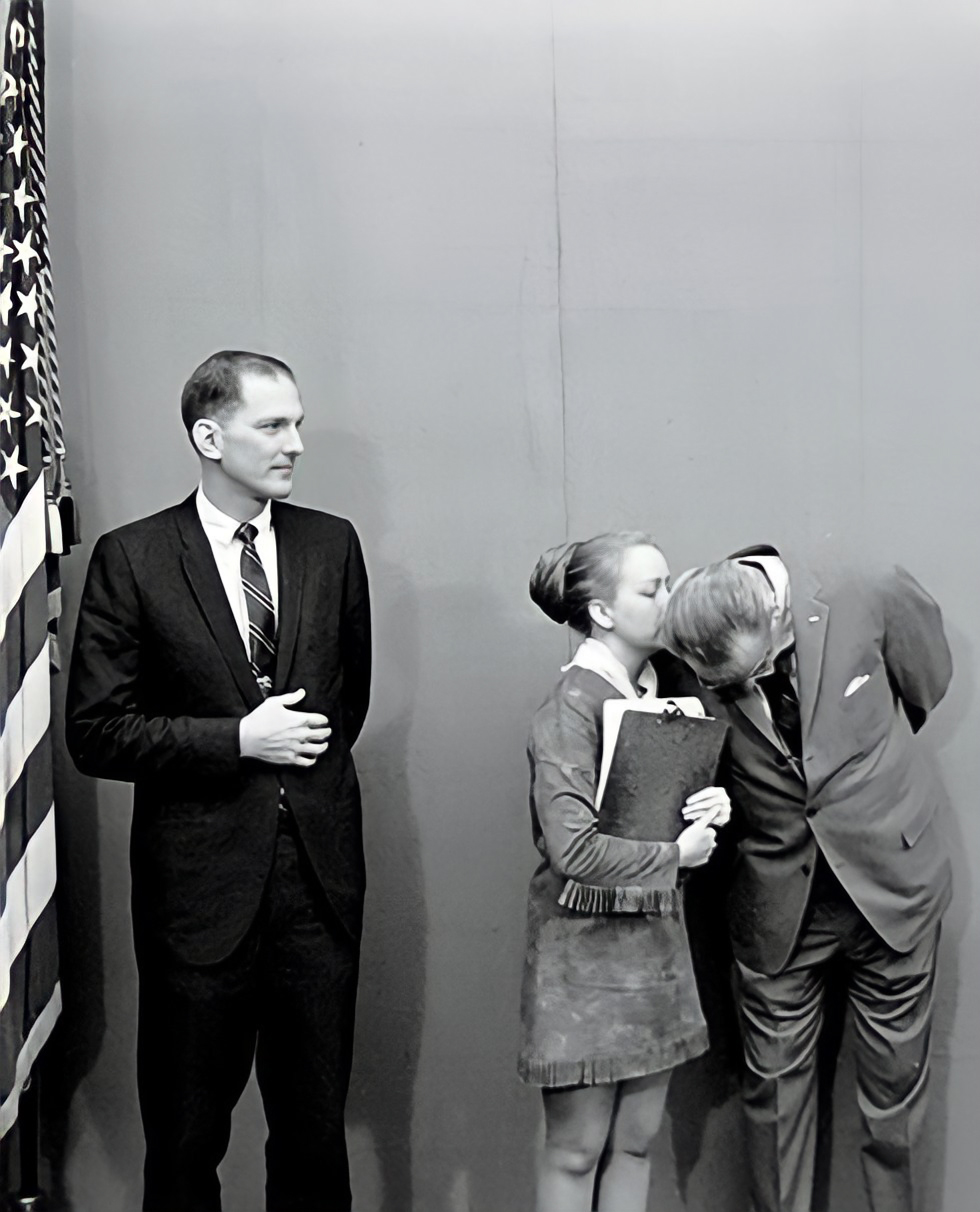
Doris Kearns was born in Brooklyn, New York and grew up in Rockville Center, Long Island. Her invalid mother encouraged her love of books, while her father shared her love of baseball; she traces her interest in history to her childhood experience recording the fortunes of the Brooklyn Dodgers. She received her bachelor’s degree from Colby College, Maine, graduating magna cum laude. While in college, she undertook summer internships at the U.S. Congress and the State Department. She won a Woodrow Wilson Fellowship and earned a Ph.D. in government at Harvard University. She was serving as a White House Fellow in 1967 when her opposition to President Johnson’s foreign policy led her to co-author an article for The New Republic entitled “How to Remove LBJ in 1968.” Only a few months later, she became a special assistant to President Johnson in the White House. The president apparently believed that having a White House Fellow who was critical of the administration would prove he did not feel threatened by the growing anti-war sentiment in America.
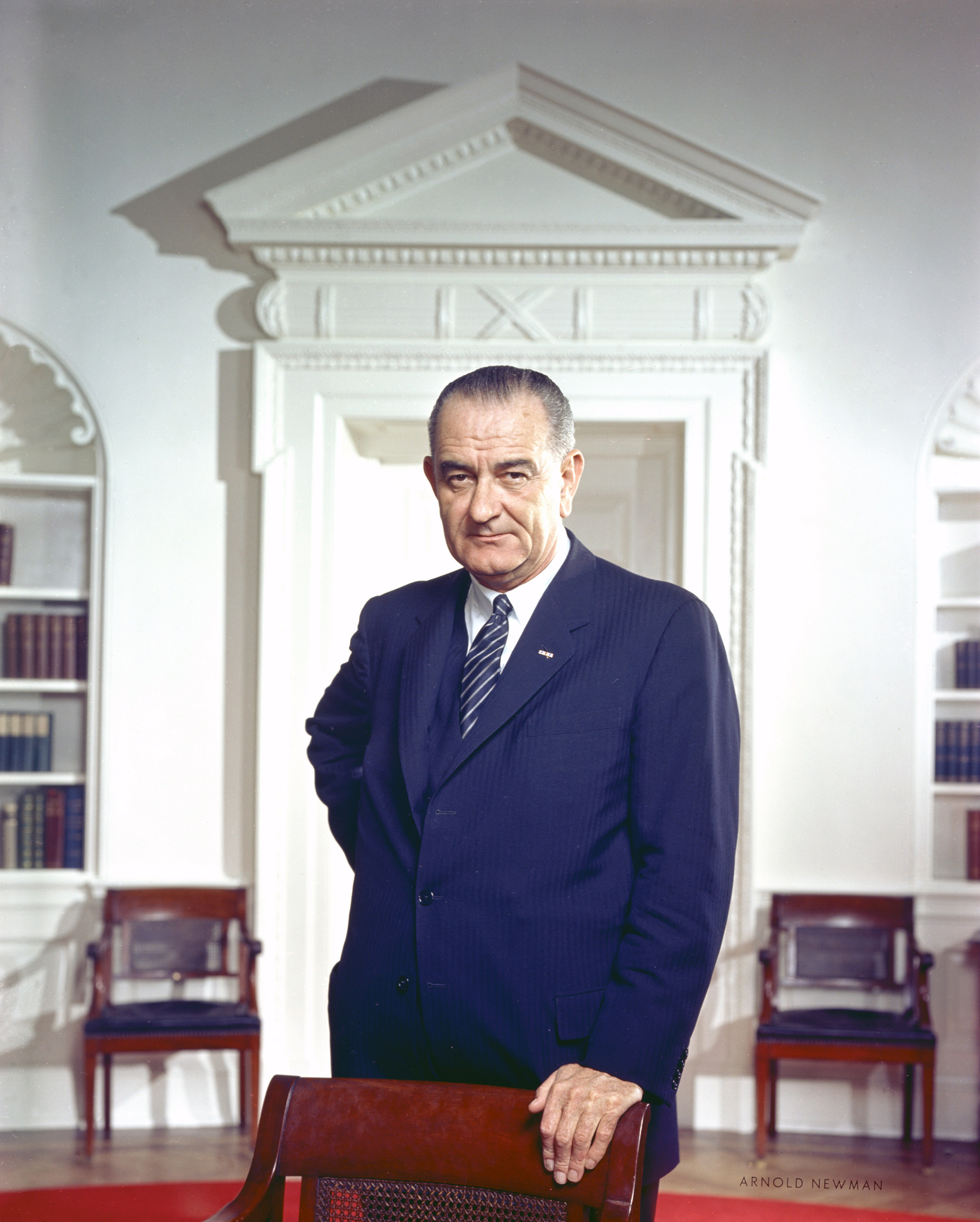
After President Johnson’s retirement in 1969, Doris Kearns began a decade’s work as a professor of government at Harvard, where she taught a course on the American presidency. On weekends, holidays and vacations she traveled to Johnson’s ranch in Texas, to assist the ex-president in the preparation of his memoir, The Vantage Point (1971).
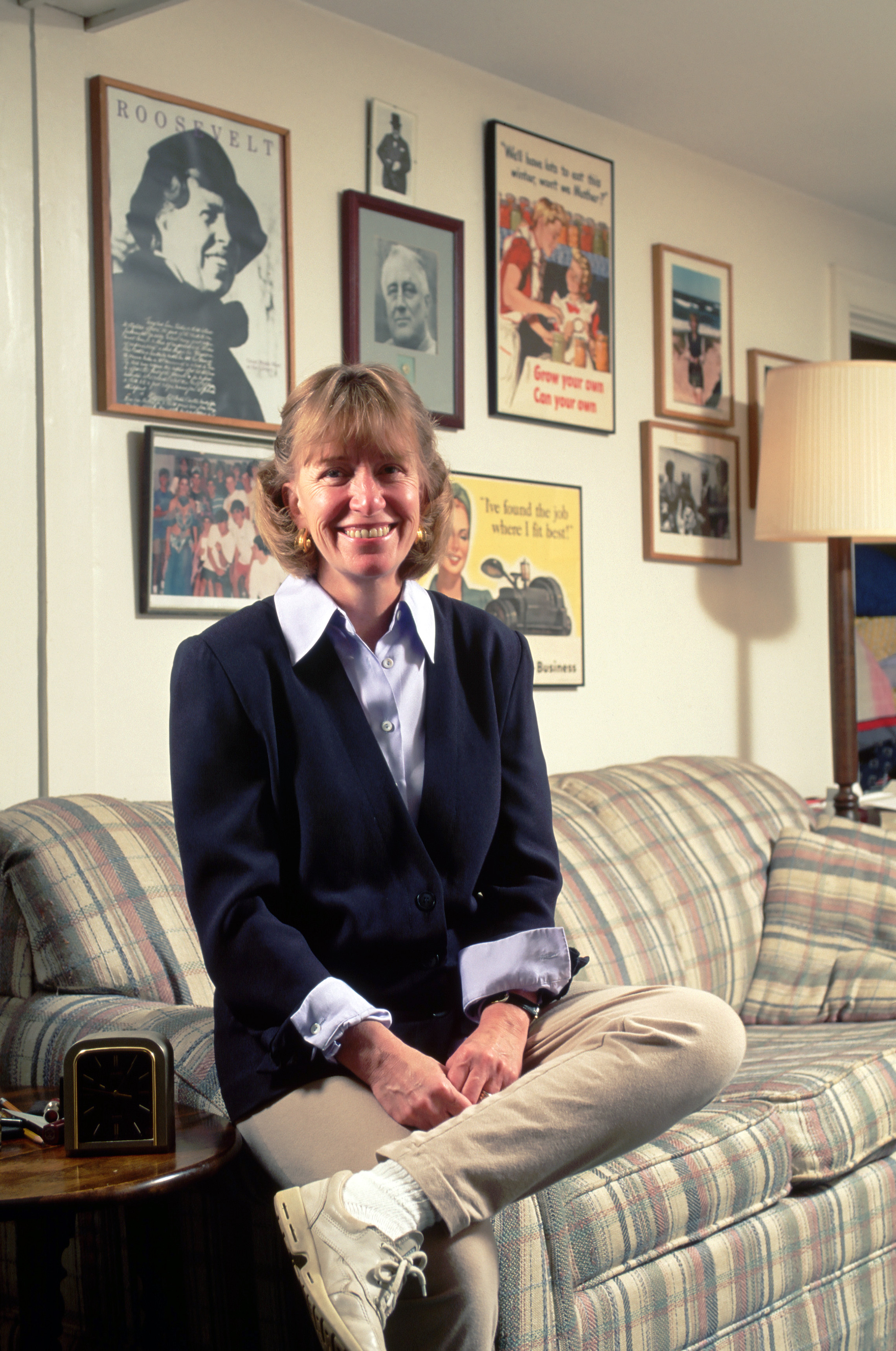
President Johnson died in January 1973. In 1975, Doris Kearns married Richard Goodwin, who had been an advisor and speechwriter to Presidents Kennedy and Johnson and to Senator Robert Kennedy. In 1977, Doris Kearns Goodwin published her first book, Lyndon Johnson and the American Dream, drawing on her own conversations with the late president. It became a New York Times bestseller and Book of the Month Club selection. With her husband’s assistance, she began research in the Kennedy family archives in Hyannisport. The result was The Fitzgeralds and The Kennedys (1987), a New York Times bestseller for five months. In 1990, it was made into a six-hour miniseries for ABC Television.
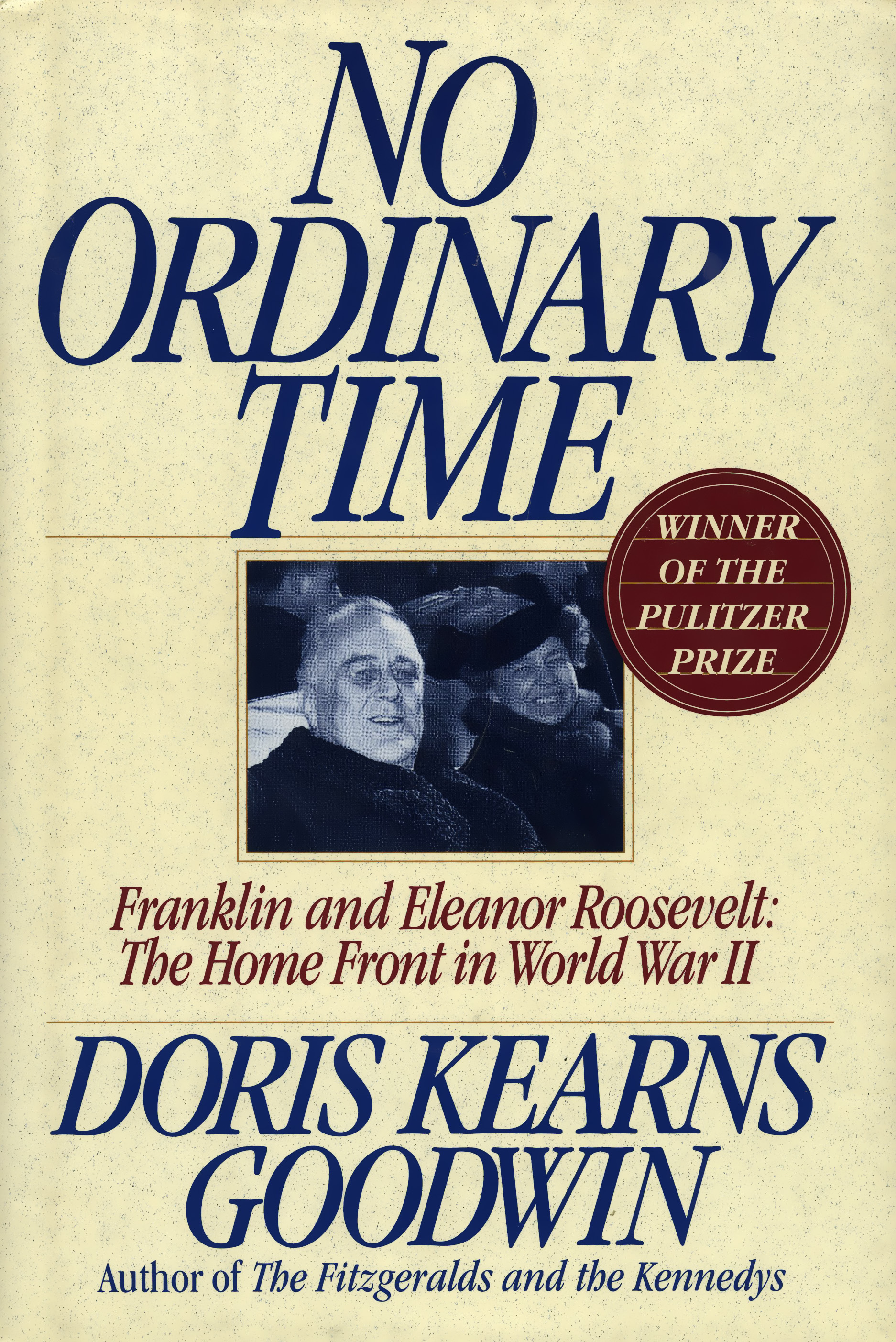
Her next success was No Ordinary Time: Franklin and Eleanor Roosevelt: The American Home Front During World War II, which was awarded the Pulitzer Prize for History in 1995. Wait Till Next Year: A Memoir was published in 1997. Her tale of growing up in the 1950s and her love of the Brooklyn Dodgers became a New York Times bestseller and Book of the Month Club selection.
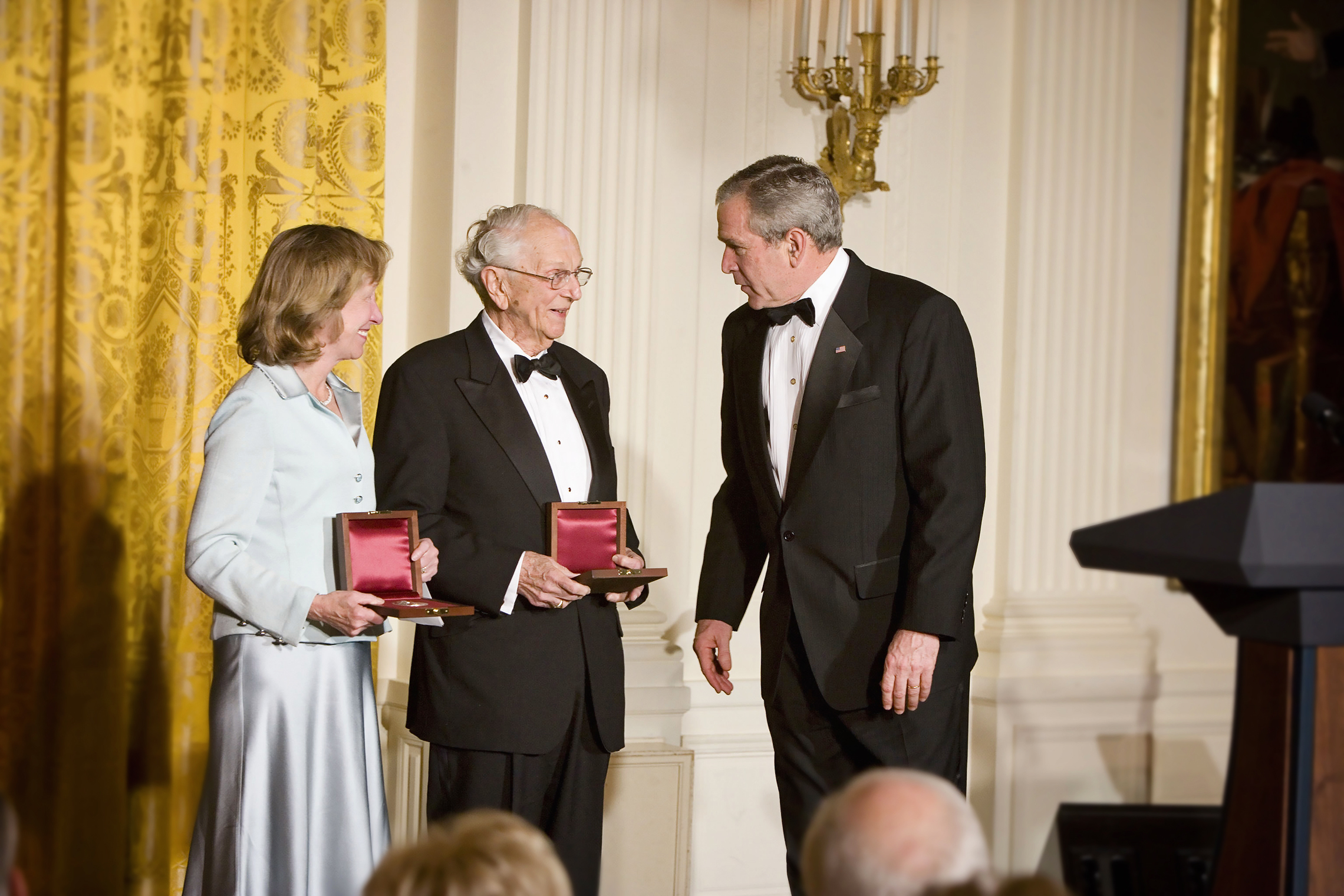
Her 2005 book, Team of Rivals: The Political Genius of Abraham Lincoln, recounts President Lincoln’s complex relations with the strong personalities he brought into his wartime cabinet. A national bestseller, it won the prestigious Lincoln Prize and the inaugural Book Prize for American History. Steven Spielberg acquired motion picture rights to the book, and the resulting dramatic film Lincoln earned 12 Academy Award nominations, with the Best Actor Oscar going to Daniel Day-Lewis in the lead role.
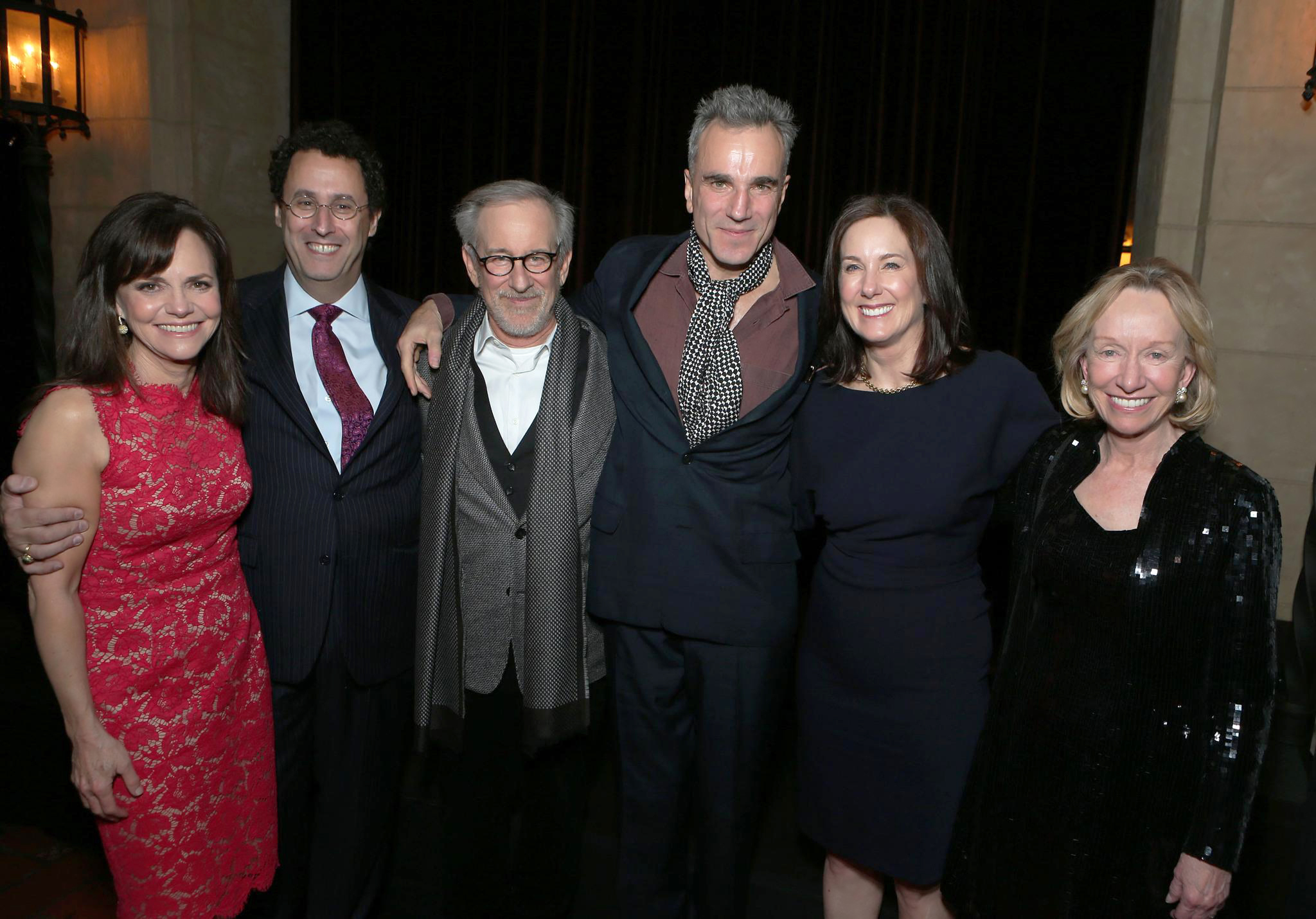
Doris Kearns Goodwin’s enjoyed another success with The New York Times bestseller The Bully Pulpit: Theodore Roosevelt, William Howard Taft, and the Golden Age of Journalism released in 2013. The Bully Pulpit tells the story of the first decade of the Progressive era, a tumultuous time when the nation was unraveling and reform was in the air. Steven Spielberg’s DreamWorks Studios has acquired the film and television rights to the book.
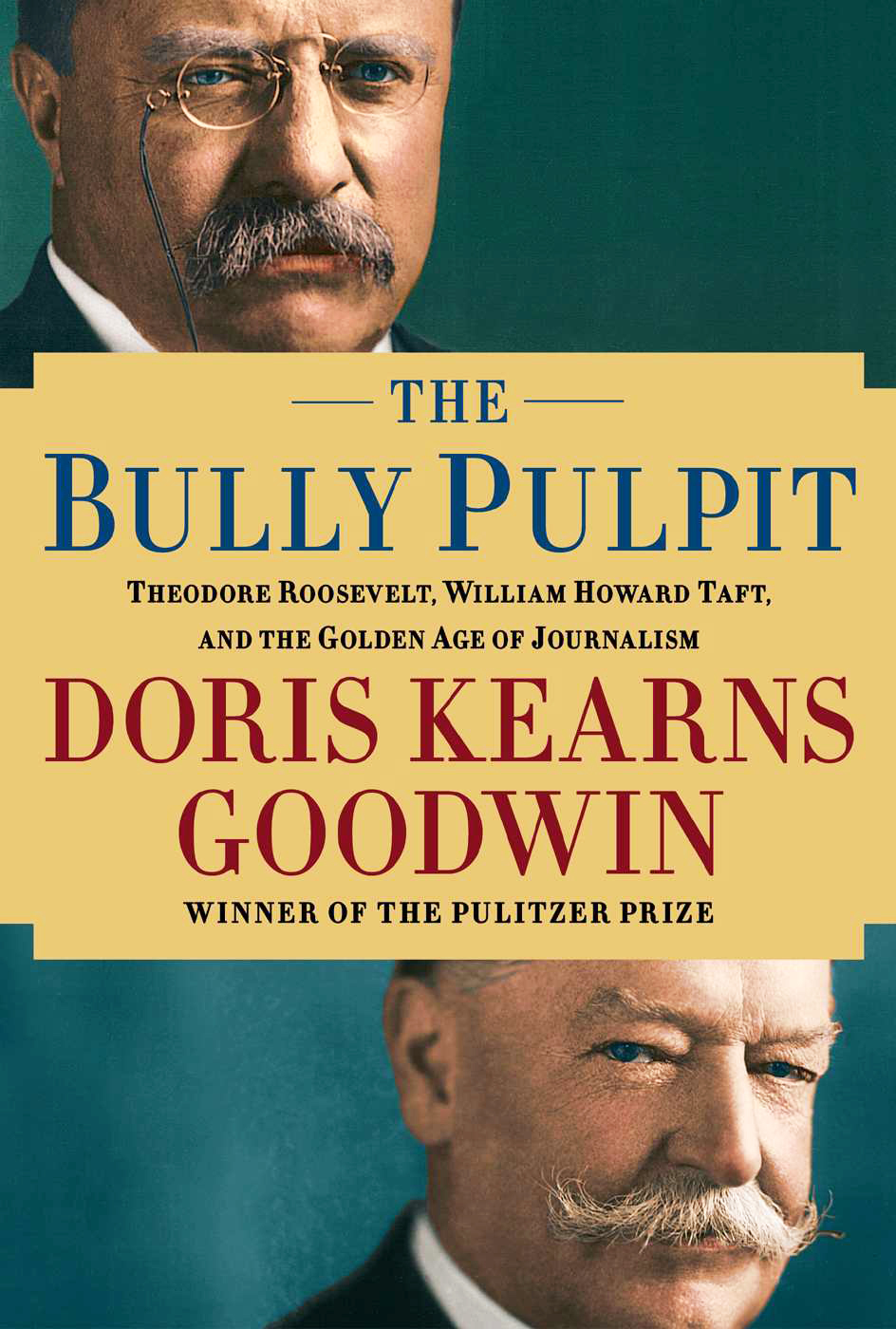
In addition to her books, Dr. Goodwin has written numerous articles on politics and baseball for leading national publications. She is a frequent commentator on NBC, MSNBC, CBS, ABC, CNN, FOX, The Charlie Rose Show and Meet the Press. She has been consultant and on-air person for PBS documentaries on LBJ, the Kennedy family, Franklin Roosevelt and Ken Burns’s History of Baseball. She is also the first woman ever to enter the Red Sox locker room.
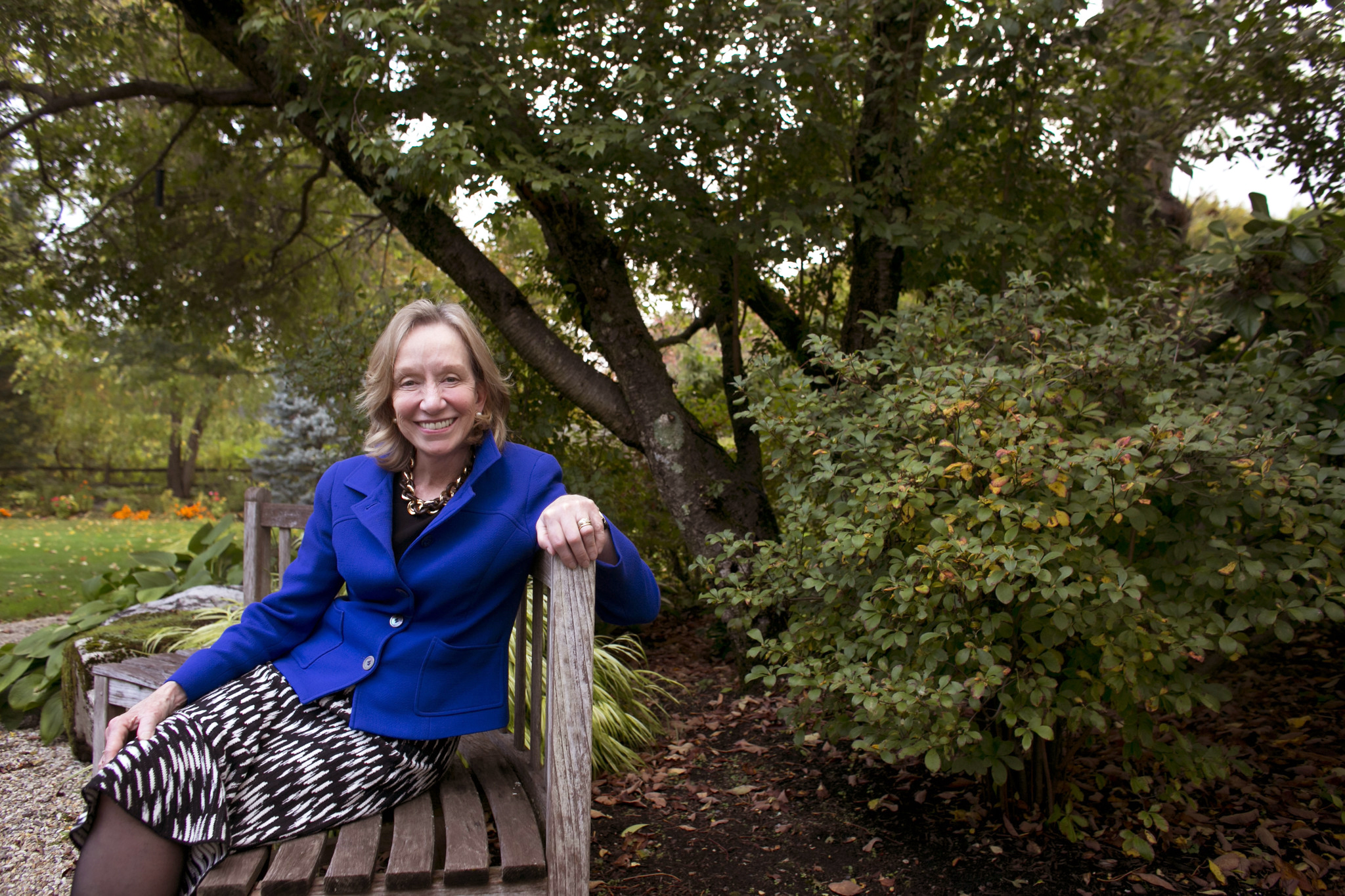
Doris and Richard Goodwin made their home in Concord, Massachusetts. They had three sons and were married for 43 years, until his death in 2018. Later that year, Doris Kearns Goodwin published Leadership: In Turbulent Times. Goodwin examines the personalities and the presidencies of Abraham Lincoln, Theodore Roosevelt, Franklin Roosevelt and Lyndon Johnson, to discover how each developed the qualities that enabled him to confront the crises of his time, while she draws new lessons for us to apply to ours.
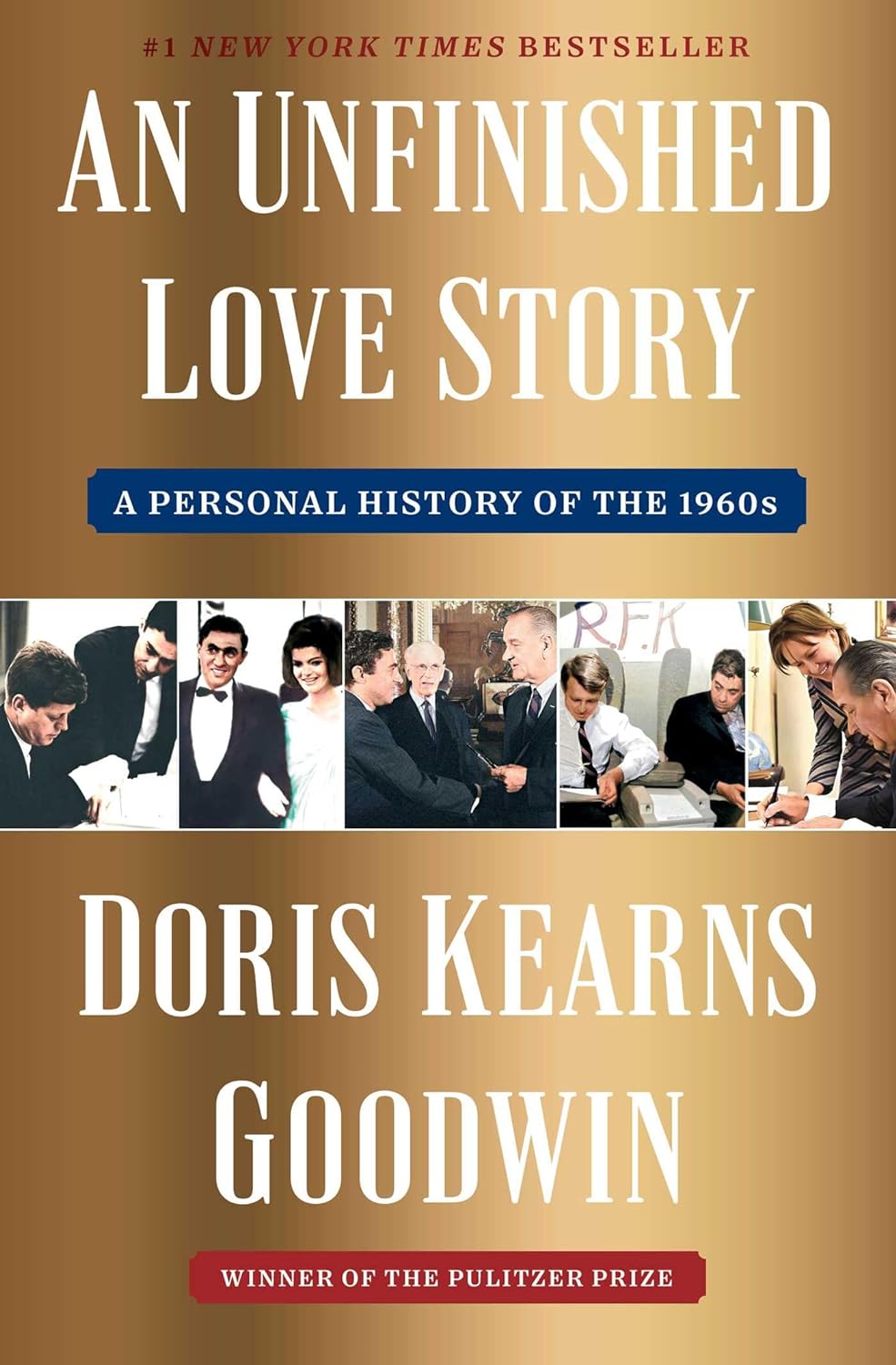
In April 2024, Goodwin released An Unfinished Love Story: A Personal History of the 1960s. This book seamlessly combines biography, memoir, and historical insight, chronicling her and her late husband Richard Goodwin’s profound engagement with key figures of American politics. Richard Goodwin, a pivotal figure in John F. Kennedy’s New Frontier and a major architect of Lyndon Johnson’s Great Society, alongside Doris, who began her significant career as a White House Fellow under Johnson, provides a unique personal perspective on the era. Their last years were devoted to examining over three hundred boxes of historical documents, which offered them a private glimpse into the turbulent 1960s—a time marked by the same racial and economic struggles that resonate today. Their explorations not only rekindled old dreams but also inspired hope that current and future generations will persist in the narrative of America’s unfinished story.

“I got to know this crazy character when I was only 23 years old. He’s still the most formidable, fascinating, frustrating, irritating individual I think I’ve ever known in my entire life.”
Doris Kearns Goodwin first met President Lyndon B. Johnson at a White House dance in 1967. At the time, she was a White House Fellow, but she had recently published an article which was sharply critical of Johnson’s conduct of the Vietnam War. Instead of arguing with her, the president asked her to dance. At the end of the evening, he suggested that she be assigned to work with him at the White House; after his retirement, he sought her adivce and assistance in the preparation of his presidential memoirs. Her own account of his presidency, Lyndon Johnson and the American Dream, established her national reputation as a historian.
She has since written bestselling studies of three other presidents and their inner circles: The Fitzgeralds and the Kennedys; No Ordinary Time (on the lives of Franklin and Eleanor Roosevelt), which earned her the 1995 Pulitzer Prize for History; and Team of Rivals, on Abraham Lincoln and his cabinet. Her books, political commentary and regular appearances on the leading television news programs have made her one of the most respected authorities on the American presidency.
Dr. Goodwin, you’ve made a career of writing about American history, and the presidents in particular. What do you feel prepared you for this work?
Doris Kearns Goodwin: I think the most important preparation was, first of all, just loving it, loving to read history. Whatever it is that you do, if you have that passion and desire for it, that’s the most important thing. And then, what I tried to do all through college and graduate school was to go to Washington every summer, so that I could have an actual experience of government. I knew I was interested in American history and government, so I thought, instead of just reading about it I’d better find out about it in practical terms. So one summer I worked in the House of Representatives; another summer I worked in the Department of Health, Education and Welfare; and another summer I worked in the State Department. And then eventually I became a White House Fellow and worked for Lyndon Johnson. And that probably was the single most important experience in orienting me to want to do presidential history, because I got to know this crazy character when I was only 23 years old.
What are your memories of President Johnson in those days?
Doris Kearns Goodwin: He’s still the most formidable, fascinating, frustrating, irritating individual I think I’ve ever known in my entire life. He was huge, a huge character, not only standing six feet four, but when you talked to him, he violated the normal human space between people. He would be right on top of you. You’d be sort of looking up into his chest. He had an enormous voice. He was a great storyteller. The problem was that half his stories, I discovered, weren’t true. There was this great time I was swimming with him in this pool that he has at his ranch. It’s an amazing pool that he created so that it could be a working pool. So at every moment when you’re trying to swim in it, floating rafts came by with floating telephones on top of them, other floating rafts with floating desks and notepads. I had read an article that day by Hugh Sidey, a reporter, who had said that Johnson had given a great speech to the troops who were going to Vietnam in which he talked about patriotism. And in this speech, he mentioned that his great-great-grandfather had died at the Battle of the Alamo. And Hugh Sidey said it was a wonderful speech. The only problem was that he didn’t have a great-great-grandfather who died at the Alamo. He just wanted to have one so much that he kind of made him up. So I turned to President Johnson. I said, “How can you do that?” and he looked back and me and he said, “Oh these journalists, they’re such sticklers for details.” And it was then that I realized that I could only believe half of what he told me.

But the stories were so much fun and he loved politics. Even though his presidency was in many ways scarred forever by the war in Vietnam, and destroyed in a lot of ways, he — as a character — was even larger than his presidency. I worked for him the last year in the White House and then helped him on his memoirs for the last four years of his life before he died, spending summers and Christmases and every other weekend at the ranch. So being able to get to know him well, that firsthand relationship with this large character, I think is what drew me to writing books about presidents. My first book was on Lyndon Johnson, and then the Kennedys and the Roosevelts came after that.
What are some of the qualities that you learned he had? Was there something you found particularly memorable about the president?
Doris Kearns Goodwin: In a funny way, the memories that I took away from Lyndon Johnson were not so much of the qualities that made him a good leader. I did see some parts of that, the ability to convince anybody to do anything he wanted them to, a belief in himself, a courage at some level, especially on civil rights. I think the one thing he’ll be positively remembered for was that he was responsible for the Civil Rights Act, the Voting Rights Act, the Open Housing Act. He was a Southerner, but at some point, he somehow came to believe that this was his destiny, to do something for black Americans. That part of him was the best part. But…
The part I remember most is that the man (LBJ) I saw in those last years, in his retirement, was really a desolate man, because he was out of power, had absolutely no interests to keep him going once the presidency was gone. So that retirement was almost like a little death for him. He’d wake up in the morning and really not even know how to get through the days. And I think what it convinced me of more than anything was that that kind of success, bought at that price, isn’t worth it, unless you have other things to balance you. He had no hobbies, no interest in sports. His family loved him, but they couldn’t fill the hole in him that he needed to be filled by the applause of millions. So he almost willed himself to die in those last years.

He hardly ever left the ranch. The only comfort he got was having staff meetings in the morning, just as he used to in the White House. But instead of telling people which bills we’re going to get through committee on the Hill that day, it would be, but rather, how many eggs he hoped would be laid on the ranch that day, or how many people he wanted to visit the LBJ Library.
He so wanted more people to go through the Johnson Library than were going through the Kennedy Library in Boston that, after a while, he used to have them — free doughnuts, coffee, anything to get them in there. And after a while the librarians — knowing how much it mattered to him — used to have a clicker. So they would click themselves in and out over and over again, just to give him an escalated count at the end of the week. So I think the experience taught me, more than anything, that if your ambition comes at the price of such an unbalanced life, that there’s nothing else that gives you comfort but success, it’s not worth it. And to see that at 23 years old was an incredibly invaluable lesson to me, because I think at that time, you think work is the most important thing in your life, and fame and success are what you’re dreaming of. Yet to be able to know that if it’s bought at that high a price, as I said, it’s not worth it. I will always be grateful for that lesson.
Was it President Johnson who fueled your passion for writing about presidents and the presidency?
Doris Kearns Goodwin: I think so.
I think I was so aware of the privilege of having this man, for some reason, having chosen me to talk to. He talked to me about his mother, his father, his dreams, his sadnesses. And I realized that it was just a pretty lucky thing in some ways that he had chosen me to be there in those last years, and use that information for that first book on Lyndon Johnson. I think from then on, it made me want to understand the private side of the public figures, because I’d had that connection with this first one I ever knew. So the kind of books that I wrote from then on were not simply the public sides of President Kennedy or President Roosevelt, but really what their lives were like in the White House at the same time.

Was it during or following your conversations with him that you had the vision of studying the lives of other presidents?
Doris Kearns Goodwin: After the Lyndon Johnson book came out, I was still a professor at Harvard. I taught a big course on the presidency in the Government Department there. Not long before Lyndon Johnson died, he called me and he said that he had this terrible feeling that no one was really going to remember him. He had been reading Carl Sandberg’s biography on Lincoln, and trying to bring Lincoln to life, and he couldn’t do it. And he said that now he realized that maybe he would have been better off searching for his immortality through his children, and their children in turn, instead of through the fickleness of the American public, who were now preoccupied with Nixon, his successor. I remember trying to tease him out of that, and saying, “Oh, they will always remember you. I’ll put a question on every exam on you,” because I was teaching this course on the presidency. And he said, “You’re not listening to me. I’m telling you something important. Get married, have children and spend time with them.” Only two weeks after that, he was dead. He died of a heart attack at his ranch.
I think I spent three or four more years after his death finishing my book on Lyndon Johnson. Once it came out, because of the way it was received and the pleasure I had in writing it, I decided that I wanted to be a writer. Up until that time, I think I saw myself mostly as a professor, writing on the side. But at that point, I had gotten married, had three kids, and couldn’t do it all. I couldn’t be a teacher and a writer and a mother. I had to choose. So I gave up teaching at Harvard in order to become a full-time historian, which is what I’ve been ever since.

What do you think you learned from writing these thorough biographies of the presidents? Do you admire them? What do you feel after you’ve written about them?
Doris Kearns Goodwin: That’s a good question, when you spend as long as it takes — it does me, anyway — to write these biographies. It took me five years on Lyndon Johnson, ten years on the Kennedys, six years on the Roosevelts. Inevitably, you get shaped by the people that you’re thinking about during that period of time.
As I said, I think with Lyndon Johnson, the most important thing I learned was that he never had the sense of security that comes from inside. It always depended on other people making him feel good about himself, which meant that he was always beholden, continually needing to succeed. He could never stop. There was such a restlessness in him. I think some people who go into public life, if they go in needing the applause of thousands, they’re never going to work out successfully in the end, because they don’t know who they are apart from the crowds. I think that was the lesson I learned most from him.
You can be enormously effective for a period of time, because it’s almost like there’s an engine in you that needs to keep going, and you have a greater drive than other people — who may be more happy and balanced in life — because you have to keep going out and proving yourself over and over again.
He (LBJ) told me that his mother loved him greatly, but always made him feel that unless he kept succeeding, she would withdraw love from him. If he came home with a bad report card, for instance, she would actually pretend that he had died. She would sit at the dinner table and say to her husband and his brother, “Isn’t it too bad that Lyndon has gone from us.” That is a pretty severe statement, to make somebody feel that, “Unless I keep succeeding, there’s not going to be anything for me there. ” He even had a certain warehouse at the ranch where — each time you went to visit him he felt compelled to give you a gift, almost as if you wouldn’t come back unless he could buy your friendship by more and more gifts. And actually he had the gifts arranged in shelves, so that each time you went to visit him you got to choose from a higher and higher shelf. So as you became an intimate friend, you finally made it to the top shelf, almost like at an amusement park. So at the beginning, I was just getting certificates that I’d flown on Air Force One. Then finally I got a scarf that had his name printed on it 500 times, until finally — this is an incredibly crazy story — I got to the top shelf after about a year and a half, and he told me that he was so excited to give me this gift, because it meant that we were very close friends. He loved it so much too, because it meant that I would think of him every morning and every night when I opened this wonderful gift. I opened it up, and inside was the largest electric toothbrush I’d ever seen in my life, with his picture on one side and the formal presidential seal on the other side. I thought, “Oh my God, this man is right. I will think of him every morning and every night!”
I would have gone back to see him. I didn’t need gifts! But he felt almost like the gifts that he gave the country — the civil rights laws, the student loans, the poverty programs, Medicaid — were what would make the people love him in return. I don’t think it works that way. I think, as a president, you have to want respect. You can’t look for love from the American people. You have to just do what you think is right. Some people will hate you, but others, in the long run, will respect you for what you’ve done.

In the Kennedy situation, what was so interesting about studying the Kennedy family was that my husband had worked as a speechwriter for John Kennedy and was very close to Bobby Kennedy, was with him when he died actually. So I had access to 150 cartons of material that had been in the attic in Hyannisport for over 50 years, that belonged to Joe and Rose Kennedy. So what interested me most about the Kennedys was the family situation. Somehow, they had created this family that lasted over time, they had a sense of connection to one another. Especially now, when people are spread all over the country and they don’t see grandparents and parents, this family bonded together. I got even more interested in that than in John Kennedy’s presidency. What was it that created this enormous ambition in that generation, that they all had to succeed? It was a mixed story.
I think John Kennedy had a great deal of confidence that came from his personality, but always in his family he felt that he wasn’t as good as his older brother, Joe Jr., who was the star of the family, more handsome, the better student, the more religious, the better kid in the family. I think he always had to show up this older brother. When the older brother died in World War II, then suddenly there was an opening for John Kennedy to become something. It’s interesting to imagine what might have happened if Joe Jr. had not died and he had become the first president. Then John Kennedy, as we know him, might never have emerged. So it showed how even place and family was so important in something like that, and what it was that Rose and Joe Kennedy, Sr. were able to do to make these kids… usually the children of wealthy people, famous people, celebrities, have a tough time making their own way in the world. Yet they inculcated a sense of ambition in that next generation. That’s very unusual, compared to Roosevelt’s children, none of whom became anything like Franklin Roosevelt.
Joe Kennedy’s kids — when you look at Teddy and Bobby and Jack Kennedy, and the girls, Eunice Shriver and the Special Olympics — they have all been driven to succeed, even though they didn’t have to do anything in their life, because they could have been playboys and playgirls. That’s what interested me most about that.
What interested you most about the Roosevelts?
Doris Kearns Goodwin: I think two things really drew me to the Roosevelts. One was I wanted to live back in the era of World War II; the book is mostly about Franklin and Eleanor during World War II. It was a time in our life when the country was bound together by a common enemy and a common goal, when there was a real sense of community in the land, especially in contrast to today’s world, where there’s so little belief in politics, in government. Our sense of nationhood is much more fragmented. It was wonderful to go back and spend six years studying a time when the country really was bound together.

Then I found absolutely fascinating — and there’s no other parallel for it in our history — the partnership between Franklin and Eleanor Roosevelt. I think what was so revealing to me about that partnership was that, in many ways, it was born in the pain of Eleanor’s discovery, when she was married for 12 years, that Franklin was having an affair with another woman named Lucy Mercer. She wanted a divorce, but it was the last thing he wanted. The important thing was he convinced her to stay together, and promised her she could do whatever she wanted within the marriage, which meant that she went outside the marriage to become a teacher, to become a political activist, something that few women could do in 1918. If you were a married woman, you didn’t run around outside. That gave her, in some ways — this terrible catastrophe in their private life — gave her the freedom to go outside the marriage and become Eleanor Roosevelt. So it showed you that some things that you might think of as the greatest crisis in your life can lead to opportunities, because Eleanor found a true public life. She had a confidence that she didn’t have in her private life.

Once they get into the presidency and he (FDR) becomes paralyzed by polio, she (Eleanor) becomes in many ways his eyes and his ears. Without her, his presidency never would have been as rich as it was. She traveled the country on his behalf, bringing him back a deep sense of what was happening in the land. She was much more active on civil rights, on poverty, on coal miners than he was, and really made his presidency more socially just than it would have been. He would be the first to admit that she made him stronger. And then she admitted, at the end of his life, that without him she would not have had the platform to be Eleanor Roosevelt. So just knowing how you can go through very difficult times in your own married life and still form this extraordinary partnership, I think, is what I took away from that book.


